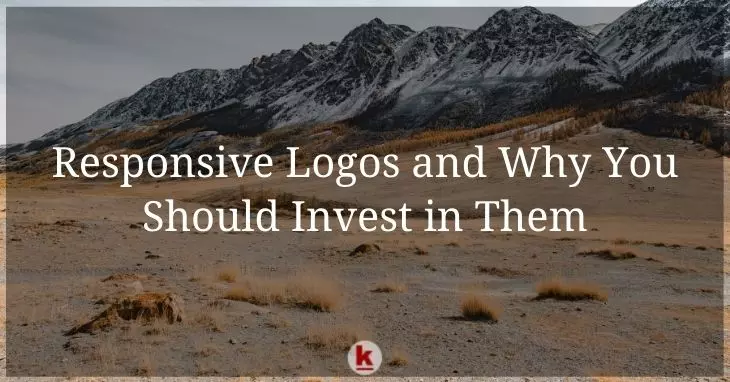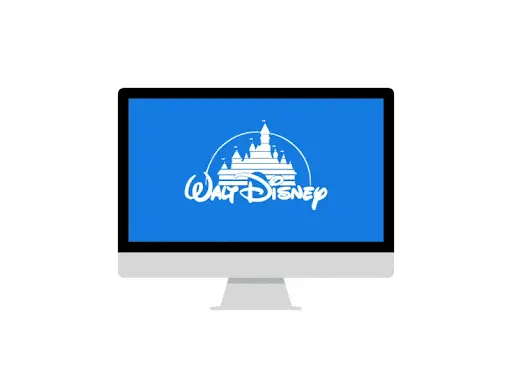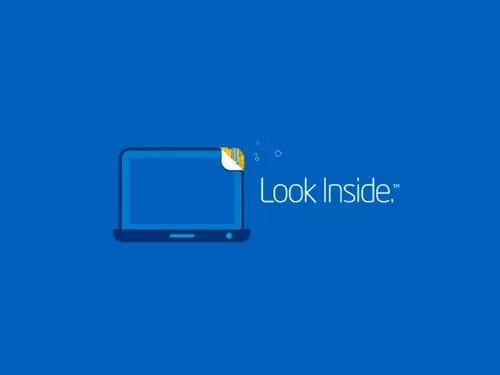Comments
- No comments found

With so much variety in screen sizes and new advertising channels being introduced, business owners have realized that logos are no longer “one size fits all.”
Over the years, technological advancements have pushed business owners to think and experiment with their brand designing. Putting your brand out there according to how your consumers interact with it is now a necessity.

Logo being one of the most essential assets of any brand, it needs to continue making an impact wherever people see it. Be it a computer screen, mobile, or billboard. So, to help your brand identity to adapt all the important platforms entered the so-called responsive logos. Now, you’re probably wondering what’s that? Continue reading to know all there is to learn about responsive logo design.
Responsive logos can shape-shift, allowing your brand identity to scale and adapt to all important platforms where your audience interacts with your brand. These logos change in size, complexity, or even color according to the platforms.
Originally looked upon as a design trend, responsive logos are now a practical necessity. Given the wide variety of screen sizes and advertising platforms, that old rule of “never change your logo” will only hold you back today.
Today, with so many places to display your logo, it is virtually impossible to use the same version everywhere. That’s where the responsive logos come into the picture. They ensure that the brand identity is visually consistent anywhere and everywhere. There are other factors listed below that make responsive logos important and a must-have in today’s time.
Now that there are so many variable screen sizes, companies need a broad range of logo designs. A complex and detailed one for large screens like that of a digital banner, TV, or computer and one as basic as a brand mark for smaller screens like phones and digital watches. Responsive logos are dynamic and can fit anywhere, they keep on changing with time, yet maintain consistency.
Also, people these days use smartphones rigorously making them and tablet devices equally important as desktops and laptops. This led Google to start boosting the ratings of sites that are mobile-friendly. It has become a necessity for business owners to adapt their brand logos to smaller screen sizes.

Responsive logo designs embrace minimalism. If the logo design is simple, it is easy to scale it across different platforms. With so many types of small screens coming into the scene, make sure your logo is not too complex. Complex and too detailed brand logos are difficult to integrate on small screens, which makes it hard for the audience to understand what you are trying to convey. So, the simpler it is, the better.
For Example, today people communicate through icons and symbols even more than they do through words. Recently, the Mastercard company decided to retain just the intersecting yellow and red circles in their logo. They made the logo seamless to make it work across the digital landscape and easy to recognize for people.



Source: brand.mastercard.com
With a rise in video content consumption, especially on social media, responsive logos are the need of the hour. You can try using motion effects for your responsive logo design just like film studio logos have experimented and used it for such a long time. Or, you can convey your brand’s unique selling point in the simplest way possible through an animated logo. Just like Intel! This makes it look more engaging and fun.

Source: Pinterest
Having just one logo might seem like a very easy option but with the introduction of new advertising channels, that one logo will only hold your brand back. Responsive logos are the new trend and necessity of the day. With responsive logo design, you can improve the customer experience of your company and they also make sure to have fantastic and visually engaging ways to connect with your target audience. So, it’s better to prepare a responsive logo design for your brand as soon as possible.
Anuja is the Co-founder and CEO of RedAlkemi Online Pvt. Ltd., a digital marketing agency helping clients with their end to end online presence. Anuja has 30 years of work experience as a successful entrepreneur and has co-founded several ventures since 1986. She and her team are passionate about helping SMEs achieve measurable online success for their business. Anuja holds a Bachelors degree in Advertising from the Government College of Fine Arts, Chandigarh, India.
Leave your comments
Post comment as a guest